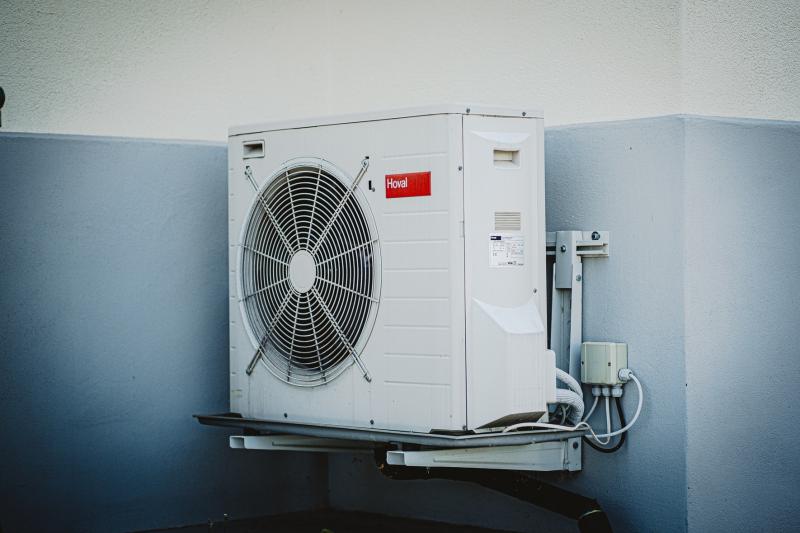New to Property Management? Make Sure You Stay On Top Of These Heating And Cooling Concerns

Heating and cooling are some of the most energy-intensive aspects of life in temperate countries. In January 2022, electricity prices spiked 11 percent higher than last year’s average, according to the Bureau of Labor Statistics. With such a high demand, any sources of inefficiency or other hang-ups can be damaging to your overall property value. Just like lush greenery, proper heating and cooling drive up customer satisfaction and loyalty, and most importantly, the value of the property.
Surmounting the Most Common Heating and Cooling Issues
HVAC systems, by and large, encounter the same general stumbling blocks. Once you’ve learned how to deal with these, you will be able to keep an HVAC system operational through all but the most specific of edge cases. The most common issue lies with the thermostat. Ideally, these would be changed out once every five years. If an issue arises within five years from your last replacement, it may be due to tenant neglect. Give your tenants comprehensive guidelines on how to maintain their thermostats, from changing their air filters to cleaning out their ducts, as well as replacing thermostat batteries. Find out whether they followed these guidelines when the thermostat breaks or on your next spot check. Alternatively, you can also take full or shared control of the thermostat, with the expenses distributed accordingly. It’s also best to give them a copy of the manual, so they can handle minor thermostat hang-ups on their own.
If a thermostat’s reading gets confused due to sunlight, drafts, or other locational factors, it may be prudent to move it. This is because false readings from even a single thermostat can put extra strain on the central air system to maintain the overall temperature, increasing the likelihood of failure. The remaining components of the HVAC system, such as heating and cooling coils, blowers and fans, and others will need regular checkups and preventative maintenance to prevent costly repairs and replacement. Cleaning the parts of the duct network that fall beyond tenant responsibility are also the task of the landlord. Make sure you change the air filters for the parts of the HVAC system that fall beyond tenant responsibility as well.
Weathering the Winter
Knowing basic HVAC maintenance allows you to take on most problems, but extreme weather will introduce a whole host of unique problems. Winter arguably presents more sources of damage and inefficiency than summer. Pipes can freeze and leak, or worse, burst. Breached pipes can cause uneven air flow that will also put a strain on the central air system. Detecting and patching up these breaches, as well as any cracks and other openings will make your heating system run much more efficiently. Insulation is also essential for maximizing efficiency.
In the winter, the components that generate the heat will be worked the hardest. It is vital that you check on the pilot light and heat pump to ensure the proper functioning of the entire system. The pilot light needs to burn brightly in order for the heating system to operate at full effect. Clean them and ensure that the flame sensor is working. Check the heat pump for frost buildup even if it has a defrost feature, as well as broken motors, coil blockages, and other malfunctions.
Apartment block heating doesn’t just extend to HVAC, by the way. Water heating is a crucial element of keeping warm during the cold months, especially if you live in Midwestern states such as Indiana, Kansas, Michigan, or Iowa. So if you're in Indiana and need a water heater replacement Indianapolis plumbing services should be on your speed dial since so you can replace or fix your heater before the weather turns chilly. One issue can worsen or lead to another, so a swift checkup is essential to prevent a simple repair job from turning into a costly reinstallation.
Surviving the Summer
It’s well-known that heat is the enemy of machinery, and hence HVAC systems are also well-known to break down a lot in the summer. Fortunately, this means that you just have to eliminate things that increase the heat of the system, and you’ll be protected from most air system issues throughout the hot months. One of the first things you want to do is to remove the slimy condensate that AC evaporator coils produce. Simply cut the power to the AC at the breaker, carefully remove the drip pan, and spray the evaporator coils thoroughly with coil cleaner. Then, wipe down the evaporator and the drip pan, and dissolve condensate tablets in the pan to delay the formation of new slime. This will eliminate most of the likelihood of your central system running too hot.
Other sources of heat include faulty wiring and insufficient refrigerant. Make sure to look out for wires that are frayed or otherwise broken, and check up on the state of other electrical implements like fuses and the circuit breaker as well. Refill refrigerant if low, and look for leaks in your refrigerant lines if they seem to run out at a faster rate than they should.
Keeping your HVAC system functioning well centers on a few simple principles. Keep it cool in the summer, keep it warm in the winter, and above all, keep it clean. As long as you keep these in mind, you’ll be able to maintain proper heating and cooling in your property all year round.
More to Read:
Previous Posts:










